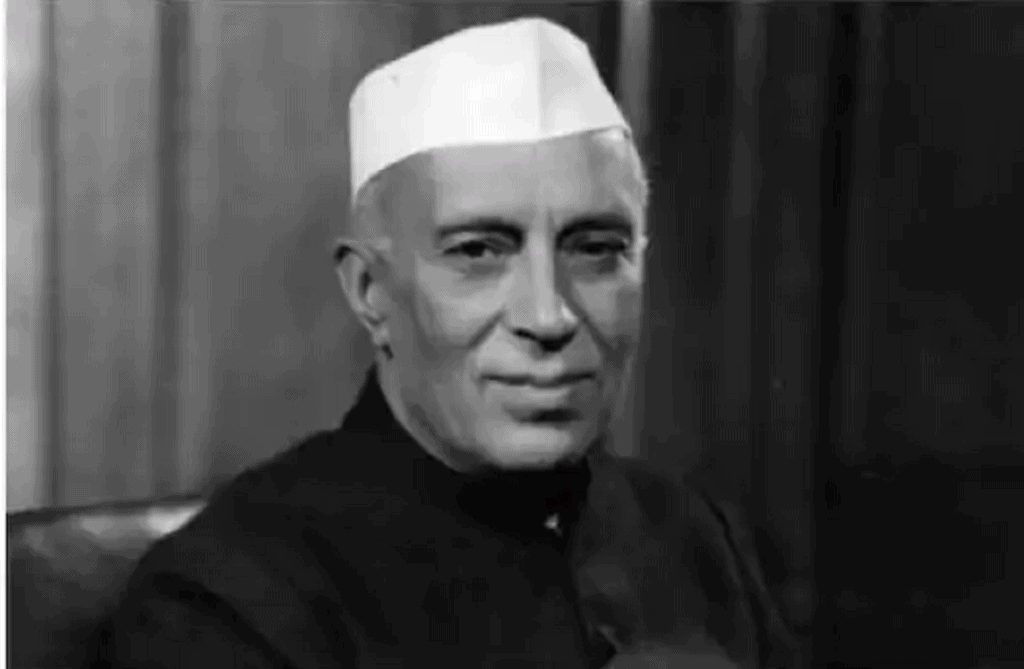By Dr. Rajkumar Singh
To measure the achievements and failures of a nation’s foreign policy has never been an easy task due to its multidimensional approach and concepts. It is bound to keep in active consideration the bilateral, regional and global parameters along with its own national power to influence the ongoing happenings around it and elsewhere in the world.

India’s foreign policy concepts are not exception to this universal dictum and in the years following country’s Independence in August 1947, it had set its foreign policy concepts, closely related to India’s socio-cultural heritage, framed and evolved during the national movement in 1920s. Both, in pre and post-Independence phases, Jawaharlal Nehru was the sole architect of India’s foreign policy, who as Prime Minister and Minister in- charged of External Affairs in the Interim Government formed on the recommendations of Cabinet Mission Plan, enumerated the basic themes of India’s foreign policy as: a. Non-alignment b. Anti-racialism and c. Anti-colonialism and India all along the period adhered to these principles. However, over the long period of over seven decades, the conceptual aspects of India’s foreign policy have itself been changing in contexts of the transformed realities of bilateral relationships, regional milieu, global politics, and preferences of the government in power. Although, it started as simple “Neighbourhood Policy” or “Policy with Immediate Neighbours, later move to “Good- Neighbourly Policy”, “Extended Neighbourhood Policy” and lastly with the beginning of Narendra Modi’s premiership in 2014 became a “Neighbour First Policy”.
India’s neighbourhood policy
From the very first day of its inception, India’s foreign policy has struggled hard to forge its relationships with neighbouring countries despite its proximity with them in spheres of geography, history, religion, economy, and ethnic and cultural linkages. Initially, and especially in 1950s the theme of India’s foreign policy with neighbours revolved around this fact and New Delhi has always considered the concept of neighbourhood as an expanding opportunity because millions of people of Indian origin live in these neighbouring countries and their safety and wellbeing remained an important part of government’s foreign policy. In this period India’s foreign policy was fully promoted and policies implemented by personal likes and dislikes of Jawaharlal Nehru, apart from being Prime Minister also hold the charge of Foreign Minister. He made all major and minor decisions himself consulting with his advisors and then entrust the conduct of neighbours to senior members of the Indian Foreign Service.
In enhancing India’s prestige and influence all over the globe, its policy of Non-alignment played a decisive role because its principles and objectives suited the world politics which was divided in two warring camps led by the United States of America and (USA) and Union of the Soviet Socialist Republic (USSR). For those who did not desire to be a part of any camp, virtually military alliance, remained member of the Non-aligned especially for the newly independent countries of Asia, Africa and Latin America, the policy provided a valid platform to express their views on several national and international issues. From the beginning, South Asia as a region, has attracted Super and Great powers of the world. In the Cold War period the rivalry between USA and USSR cast a dark shadow on the stability of Afghanistan and Pakistan in India’s neighbourhood. Even in the post-Cold War phase, the situation changed and the US became friendlier with India but, perhaps due to China’s emergence as a potential power in the region. At present, US always tries to check and curtail Chinese influence in the region and this is why it has sided with New Delhi.
Initial perceptions: Inherited and nourished
Conceptually, peace at regional and global level dominated the Indian policy which earned a good name for the country internationally and Nehru emerged as a champion of diplomacy. Few years later Panchsheel and its principles which include: a. mutual respect for each other’s territorial integrity and sovereignty, b. mutual non-aggression, c. mutual non-interference in each other’s internal affairs, d. equality and mutual benefit, and, e. peaceful co-existence. In nutshell, these principles were a set of principles to govern inter-state relations in world politics, it however, was codified to guide India’s relations with the Peoples Republic of China (PRC), when the two countries signed the Agreement on Trade and Intercourse between Tibet Region of China and India at Peking on 28 April 1954. By signing the Agreement, Nehru, in a statement, hoped that if these principles were accepted in the mutual relations of all countries, then there would hardly be any conflict and certainly no war. But his hope and belief belied when within a decade in September-October 1962 China attacked India and took a significant portion of its territory under its control, which has proved a major irritant in the smooth sailing of their overall relations. The event spared no space for peace, mutual cooperation, mutual understanding and belief in their relationship.
In nutshell, more or less, the theme of Nehru’s foreign policy rested on three basic assumptions; a. because of its size and diplomatic height, India is bound to owe the responsibilities of the region and the role attached to it, b. India is the leader of non-aligned that would help create a buffer of the Third World states and, c. India would collaborate with China to keep the region free from super power rivalry. But many of the scholars and foreign policy experts have criticized the initial foreign policy approaches India adopted while dealing with and its neighbours. The over-emphasis on peace and India’s excess engagement in worldly affairs resulted in neglect of real issues with immediate neighbours and it naturally gave more focus on managing relationships with neighbours rather than giving a concrete shape and direction to the policy perceptions keeping in view the long – term objectives and broad vision in consideration.
Change of perceptions in post-1962
The developments which took place at the close of 1950s and early 1960s unveiled India’s diplomatic mistakes and weaknesses of past years. It exhibited country’s failure to carry out a proactive diplomacy in respect of immediate neighbours and failure to instill a belief or confidence in them that India is dealing with neighbours as a friend and equal and not as a power or big brother whose target is to maximise its power and influence at the cost of others. It made them suspicious and fearful about India’s motives and designs and as a result they began to seek alternatives, to balance their relations with India. Especially after 1962, the People’s Republic of China filled this vacuum. India’s defeat in 1962 at the hands of China undermined its image globally and posed a serious challenge on security counts for policy – makers as well.
The above situation compelled the Government of India and public perceptions as well to make a shift of earlier preferences in policy and its implementation at regional and global levels. Now, it became security- focused and various alliances were made to strengthen country’s position in defence sector and an overhauling of India’s defence policy soon initiated to make India strong and capable to fight the enemy when its territorial safety is in danger. After this watershed for Indian defence policy planners they chalked out a comprehensive security plan and scheme of military modernization with the help of the United States of America and the Soviet Union. Thus, the earlier policy of Nehru focusing global influence without military power was abandoned and he, himself, admitted in April 1963 that protection of country’s interest, by force if necessary, was the first change, India will follow in future. India’s new defence was set beyond the neighbourhood parameters, and the nation moved on the march for achieving major power status by all means. This perceptional change strengthened further in successive dispensations.
Author: Dr. Rajkumar Singh. Professor for the last 23 years and presently Head of the University Department of Political Science with Dean, Faculty of Social Sciences at the Bhupendra Narayan Mandal University, Madhepura (Bihar), India.
(The opinions expressed in this article are solely those of the authors and do not necessarily reflect the views of World Geostrategic Insights)







